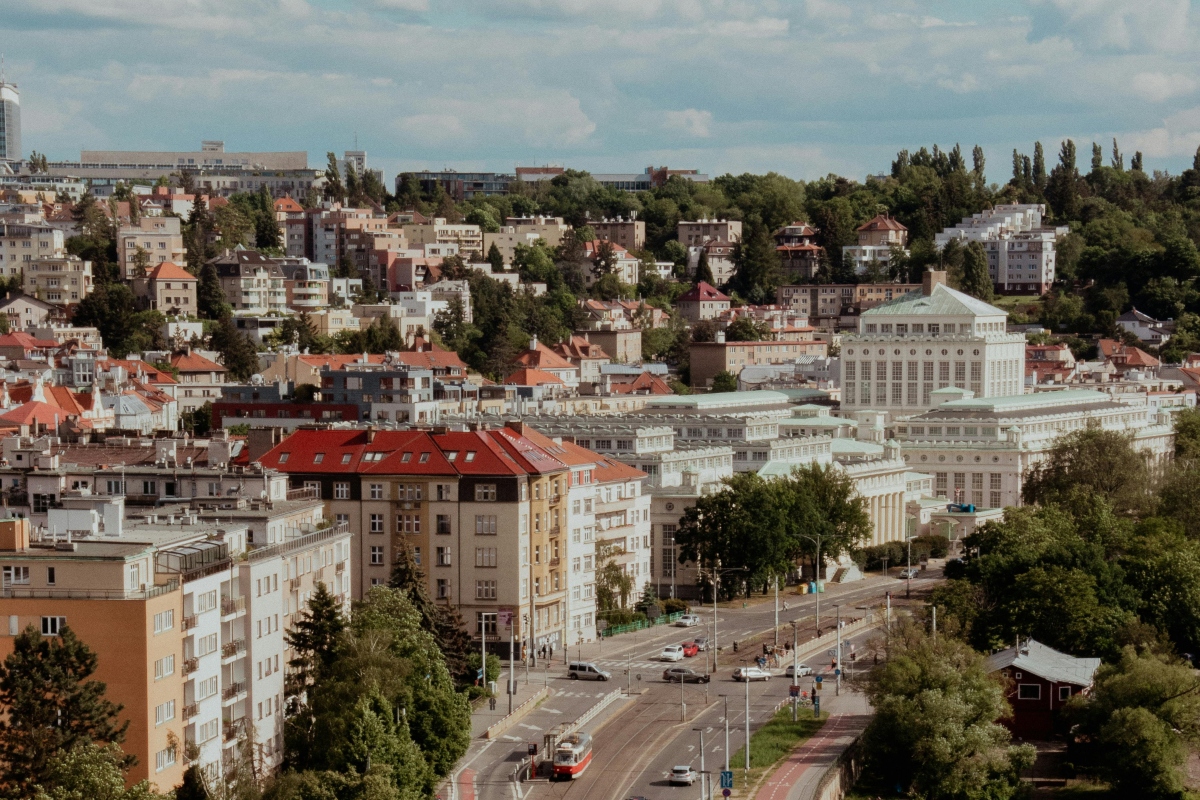While we often hear stories about Black experiences in Western Europe or the United States, the narrative of Black individuals in Central European countries like the Czech Republic remains less explored. The Czech Republic is a relatively homogeneous society, with most of the population being Caucasian. Over the past few decades, the number of people of color living in the country has increased significantly, primarily due to the opening of the Iron Curtain.
Despite this, the country’s diversity is lower than that of other European nations. Still, the Czech Republic is home to a minority group that has been growing over the last several decades: Afro-Czechs. These individuals, possessing African roots but deeply intertwined in Czech society, have a unique perspective on life in the Czech Republic, with stories of both struggle and triumph echoing throughout their community.
A Brief History of Afro-Czechs
Following WWII, the Czech Republic and the Czechoslovak government gave study grants to African students from countries where they had developed diplomatic relations. These African students studied science, technology, and medicine in Czech and Slovak universities. The majority came from Angola, Ghana, Guinea-Bissau, Mali, Mozambique, Nigeria, and Zambia.
Some of these students chose to make the Czech Republic their permanent home, marrying locals and starting families. This marked the birth of the first generation of Afro-Czechs. In the post-communist era, the Czech Republic began to open up to the outside world. This openness allowed for increased immigration, leading to a greater presence of Afro-Czechs in the country. Today, while they remain a minority, Afro-Czechs contribute significantly to Czech society in various fields, including arts, media, and literature.
The Afro-Czechs Experience Through Art
The contributions of Afro-Czechs have significantly enriched the arts sector in the Czech Republic. Their unique experiences and cultural backgrounds have injected a fresh perspective into the scene, with many Afro-Czech artists gaining national and international recognition. Czech-Nigerian dancer and choreographer Yemi Akinyemi Dele has made waves in the world of dance. His innovative choreography, blending African and European dance styles, has earned him collaborations with global superstars like Kanye West. His success has shone a spotlight on the potential and talent within the Afro-Czech community.
On his first trip to Nigeria, though, Dele spoke to The Nation and revealed that the racism he endured as a Black youth in his town inspired him to pursue dancing. “They call me monkey, and they call my mother bad names,” he said. “Then, it was not easy, but it didn’t break us. It made us to be stronger.”
Still, he became aware of his dancing skills, and soon enough, children from all over the town wanted to watch him and befriend him. “When they play music and I begin to dance, the kids will always come to me, telling me to teach them dance steps and moves,” he said.
Music has been another platform for Afro-Czech artists to express themselves and gain recognition. One such artist is Benny Cristo, a Czech-Angolan singer chosen to represent the Czech Republic at the 2020 Eurovision Song Contest with his upbeat song “Kemama.” Benny discussed the song with Radio Prague International and opened up about how he incorporated elements of his background and experiences into the music.
“Stylistically, this song is Afropop, which is a genre I haven’t seen yet in this competition. So I thought I would give it a try. I really like the tempo of it and I am really comfortable with this kind of music. As for the lyrics, the verses are based on my life. I was just trying to put everything that I have been through into this song and make it sound happy at the same time,” he explained.
Afro-Czechs in the Media and Literature
The media landscape in the Czech Republic has also seen the impact of Afro-Czechs. With their unique perspectives and experiences, Afro-Czechs in media have helped diversify and enrich Czech media content. One prominent name in Czech media is Lejla Abbasová, a Czech citizen of Sudanese descent. As a popular TV show presenter, Abbasová has become a familiar face in many Czech households, serving as a role model for aspiring Afro-Czech media personalities. Similarly, Rey Koranteng, a Czech-Ghanaian, is a popular presenter on TV Nova, the country’s most-watched television station.
Afro-Czechs have also made their mark in the world of literature, using the written word to express their unique experiences and perspectives. One of the most prominent Afro-Czech writers is Obonete Ubam, a Czech-Nigerian lawyer, author, and activist. Ubam coined the term “Afro-Czech” and has written extensively about his experiences growing up as an Afro-Czech in the Czech Republic.
“There are probably several hundred, perhaps thousands of Afro-Czechs, but we are not recognized as an ethnic minority. The majority of Afro-Czechs I know consider themselves Czechs, and that’s it. No attempt [has been made] to set up a group or establish a census. There is indeed a sense of ‘us’ but not of community. There are so few of us that we all know each other. Considering how few Afroczechs there are, it is amazing to see what they have been able to accomplish. Yet, there is clearly a glass ceiling: I can’t imagine an Afroczech president, for example.” Ubam shared this during an interview with Global Voices.
The story of Afro-Czechs in the Czech Republic is one of resilience and determination. Despite facing numerous challenges, they have carved out a space for themselves in Czech society. Through their contributions to the arts, media, and literature spaces, they have enriched Czech culture and broadened the country’s understanding of diversity. While there is still work to be done to ensure greater acceptance and recognition, the Afro-Czech community continues to thrive and make strides in the right direction.
